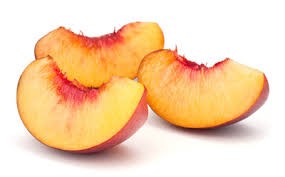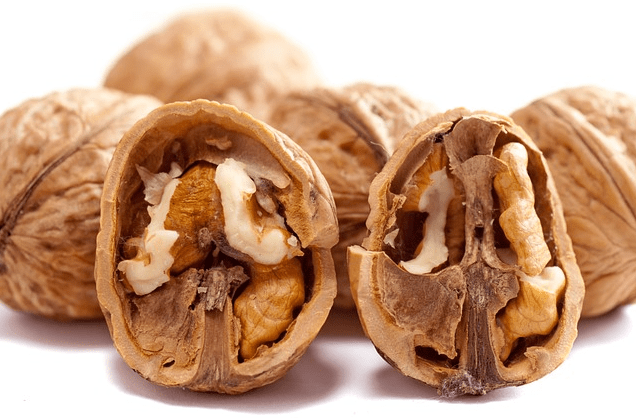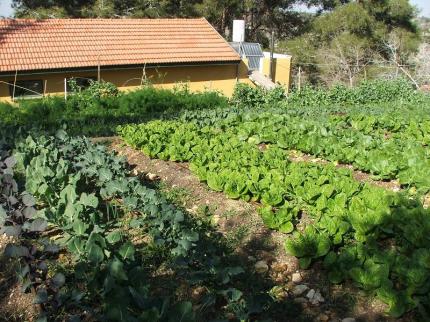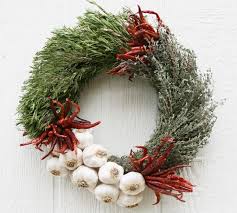A bald peach… the Nectarine!
That's how my friend’s young son used to call nectarines. The vegetable box would arrive at their home, and he would run to dig in it. "Mom, did you order hairy peaches or bald ones?" (What a pleasure to hear a child waiting for his favorite fruit to arrive in the box of surprises, instead of eating some junk filled with food coloring from the grocery store…). This organic fruit is fragrant, juicy and pleasurable especially at the time it comes, during our hot, dry summer. It is so tangy-sweet that its smell does not leave anyone who passes within sniffing distance indifferent (like strawberries in winter), even its delicate blossom puts a smile on people’s faces.
Originally, organic nectarines, like many other good things (like noodles and fireworks), comes to us from China, where for thousands of years it has flourished and can still be found there as a tree that grows wild (Just like our barricades of sabra). Perhaps the older Chinese also have childhood memories of climbing nectarine trees, collecting fruit and selling it by the roadside to make some pocket money? It was a rather convoluted passage that brought it here, but we are very happy that it arrived. From China it moved to Persia (hence the origin of the name persica), then made a stopover in Greece, courtesy of Alexander the Great, and then spread out to the entire Mediterranean basin by the Romans.
The nectarine relies on the pollination of bees. Are you acquainted with the list of organic and non-organic fruits that will be lost if the bees become extinct? The nectarine is in it. And the cherries, and most other deciduous trees. So when the spring comes and the nectarine begins to bloom, the hum of the bees is pure music to the tree’s ears. "Come on, darling, please sit here and relax," says the nectarine tree to the bee. Nectarines have ancient origins, so I suppose that is how they speak. "Tell me about the hive, and what fields did you fly in today, and how is the neighboring peach patch; please give them my regards," and the bee thanks the tree for its hospitality, and also takes some pollen with it to the next tree that it visits. So if you have a nectarine tree in your garden, do not be angry at the bees or the birds (I hope the tree is not over your parked car) and the mess they sometimes make. It is a delicious and happy mess!

In our country, peaches, which are the predecessors to the nectarines, grew hundreds of years BC, and are mentioned both in the Talmud and also in the Mishnah, in which it was called "Fersek" or "Ferskin" – “the peach and the almond, … even though they are similar one to the other, nevertheless constitute kilayim [in respect to grafting]” (Mishnah kil’ayim, 1, 4).
You can use the fruits fresh or dry for food, as they wisely did in ancient times. Use them also for medicine (because "may your foods be your medicines!"). Archaeological findings show that the fruit accompanied the residents of the land of Israel as early as 1700 BCE. It was brought here by the Romans, during the Second Temple period, and since then they have remained here. At that time it was a popular fruit, which was consumed alongside other "Israeli" fruits such as pomegranates, grapes and carob, hence the ancient custom of using these fruits as part of the sukkah decorations. They are also both beautiful and wonderfully fragrant.
During the population growth period of the 1950s, many attempts were made to modify and improve the fruit, and they evolved different varieties that prefer the different degrees of temperature that are found in the different growing areas in Israel – along the coast, in the Galilee and in the Judean hills and Jerusalem.
For humans, organic nectarines bring plenty of good nutrients: fiber, vitamins and minerals, and plenty of water. In nectarines there is vitamin K (found also in organic kale, but the best – a salad of both together, with some balsamic sauce), vitamin A, vitamin C, vitamin E (which is good for the immune system, the skin and the eyes) and a lot of members of the B vitamin groups. They also contain the minerals potassium, zinc, phosphorus and magnesium, all of which are excellent for the body and should definitely be consumed.
The organic fruit, as often happens, is smaller than the sprayed fruit and is more expensive, so out of scientific curiosity, yesterday I bought 2 large, beautiful "conventionally grown" nectarines. From the first bite I remembered the proverb about the pitcher and what was inside it, because these beautiful nectarines turned out to be completely tasteless! It also reminded me how conventional agriculture is carried out and what is sprayed on this wonderful fruit to make it reach these unnatural dimensions, and so that no insect will want to come near it. In short, I prefer my fruit smaller, tastier and without poisons.
To health!
Yours,
Maggie and the garden staff
We can expect in our Veggie boxes (draft only):
Leeks
Celery root
Beets
Swiss Chard
Purslane
Potatoes
lettuce
Tomatoes
Cucumbers
And purple cabbage
In our large organic Veggie boxes:
parsley
Zuchinnis
mint
onions
I our organic fruit baskets:
Bananas
Oranges
Melon
In our large organic fruit baskets:
Papaya
And more oranges









